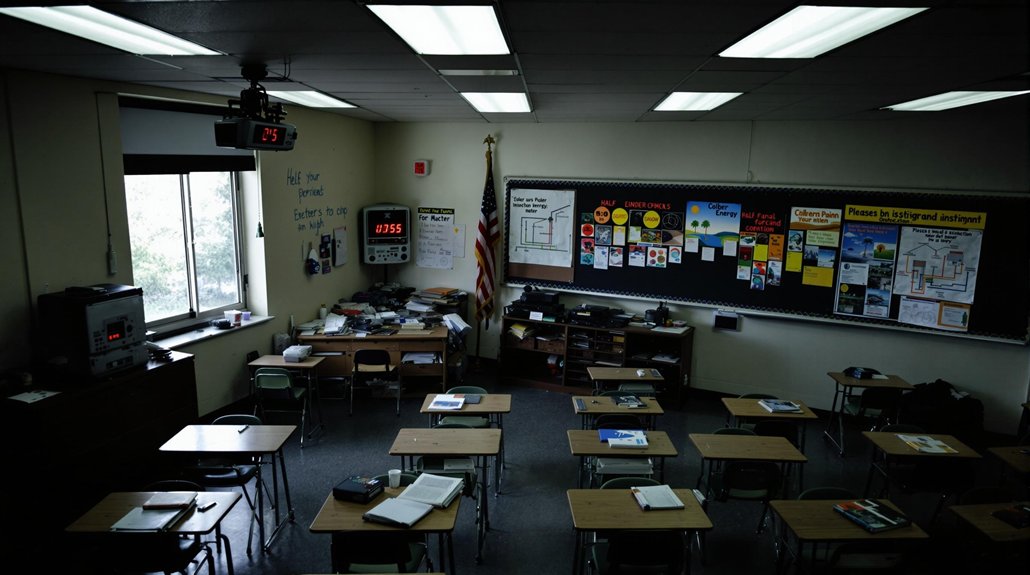Michigan schools face a financial crisis with over $40 million in federal funding at risk. About 350 districts will receive less state aid due to a 7.5% drop in economically disadvantaged students. Programs like tutoring and summer school are threatened, while staffing freezes are being implemented. Meanwhile, House Republicans have proposed a 25% cut to school funding. These challenges seriously impact educational services for vulnerable students across the state.
Dozens of Michigan school districts are facing difficult budget cuts following a triple financial blow. Over $40 million in school funding is now at risk after the U.S. Department of Education decided to rescind previously approved reimbursements. About $24.2 million was already distributed to districts, with Flint receiving $14.2 million of its requested funds. The remaining $17.8 million may never reach schools unless federal officials reverse their decision.
At the same time, Michigan has 58,000 fewer K-12 students classified as economically disadvantaged, resulting in a 7.5% drop from last year. This decline comes from stricter Medicaid requirements following the end of pandemic-era support programs. As a result, about 350 of Michigan’s 820 districts will receive less at-risk state aid, threatening important programs like tutoring, summer school, and support staff positions.
Stricter Medicaid requirements have reduced economically disadvantaged student counts, threatening vital programs for Michigan’s most vulnerable learners.
The financial outlook became even more uncertain when Michigan House Republicans passed a budget proposal calling for a 25% cut to school funding. This would reduce education spending by $5 billion compared to the current year. While described as a contingency for a potential government shutdown, Senate leadership has questioned whether such drastic measures are necessary. The competing Senate budget proposal remains pending, leaving districts unable to plan effectively.
These funding reductions directly impact educational services for vulnerable students. Districts are implementing hiring freezes, delaying curriculum updates, and reconsidering staff contracts to reduce expenses. L’Anse Creuse Public Schools is already searching for places to trim their budget due to the reduced at-risk funding. Grand Rapids school district is facing a 1.36 million dollar loss due to a 14% drop in economically disadvantaged students.
School administrators must weigh difficult choices between maintaining classroom resources, instructional materials, and extracurricular activities. Support positions like aides and intervention specialists face potential reductions as districts struggle to meet budget targets. The Department of Education’s abrupt policy change has created significant challenges as many districts had entered into educational contracts based on previously approved reimbursement expectations.
The uncertainty surrounding both federal and state funding sources has created a challenging environment for planning long-term educational initiatives and maintaining quality programming for Michigan’s students.






